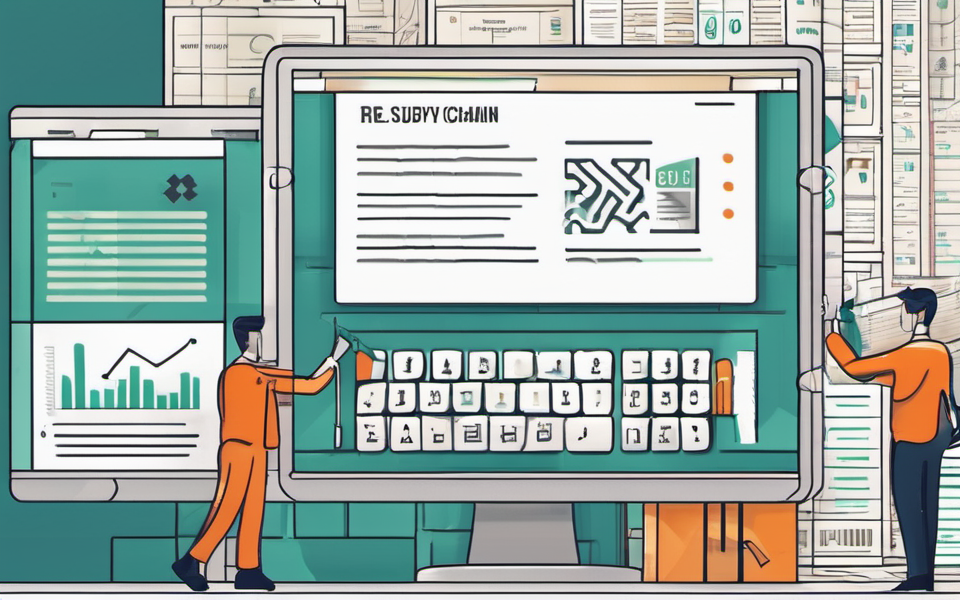Ever wondered how companies get paid faster and manage cash flow more efficiently? It might sound complicated, but the secret weapon is blockchain technology. And guess what? This revolutionary technology is transforming the world of supply chain finance.
The Pain Points of Traditional Supply Chain Finance
Think about the typical process: a manufacturer produces goods, ships them to a retailer, and then waits for payment. This wait can be agonizing, especially when you factor in:
- Delayed payments: The retailer may take weeks or even months to pay, putting a strain on the manufacturer’s cash flow.
- Lack of transparency: It’s often difficult to track the progress of payments and goods, leading to confusion and delays.
- High administrative costs: Paper-based processes and manual reconciliation require significant time and resources.
This is where blockchain comes in as the hero, ready to rescue companies from the dark abyss of inefficient supply chain finance.
Blockchain: The Solution for Faster and Transparent Payments
So, how does blockchain solve these problems? It all comes down to creating a decentralized, secure, and transparent system for managing supply chain financing.
How Blockchain Improves Transparency and Traceability
Imagine a digital ledger, shared by everyone involved in the supply chain, where every transaction is recorded and easily accessible. That’s the power of blockchain.
- Real-time tracking: All parties involved can view the progress of transactions and goods in real time. No more guessing!
- Unbreakable records: Each block in the chain is encrypted and linked to the previous one, creating a tamper-proof history of transactions. Say goodbye to fraud and manipulation.
Unlocking the Power of Smart Contracts
Here’s where things get truly interesting. Blockchain technology introduces smart contracts, which automate payment processes and ensure timely settlement.
- Automatic payment triggers: When certain conditions are met, such as delivery of goods, the smart contract automatically initiates payments, eliminating the need for manual intervention.
- Reduced fraud: Smart contracts enforce predefined conditions, minimizing the risk of fraudulent activities.
Case Study: A Real-World Example of Blockchain in Supply Chain Finance
Let’s dive into a real-world example:
The Role of Blockchain in Food Supply Chain: The “Farm to Fork” Initiative
Imagine a network of farmers, distributors, retailers, and consumers all connected by a single, secure platform. This is the promise of the “Farm to Fork” initiative. Blockchain technology plays a key role by:
- Tracking food provenance: Every step of the food journey, from farm to fork, is meticulously recorded on the blockchain, enabling consumers to trace the origin of their food.
- Streamlining payments: Farmers receive payments faster and more transparently, as blockchain automatically triggers payments when goods are delivered.
Key Benefits of Using Blockchain in Supply Chain Finance
Besides faster payments and increased transparency, blockchain offers a plethora of other benefits, including:
- Improved efficiency: Automating processes reduces the need for manual paperwork and streamlines operations.
- Enhanced security: Blockchain’s encryption ensures the security of sensitive information, minimizing the risk of fraud and cyberattacks.
- Lower costs: Automated processes reduce administrative overhead, leading to significant cost savings for all participants in the supply chain.
Key Takeaways
Let’s recap the benefits of blockchain in supply chain finance:
- Faster payments: Smart contracts automate payments, ensuring quicker and more efficient cash flow.
- Improved transparency: All parties involved can track transactions and goods in real time, promoting trust and collaboration.
- Enhanced security: Encrypted records safeguard transactions against fraud and manipulation.
So, if you’re looking to streamline your supply chain finance operations, enhance efficiency, and optimize your cash flow, blockchain is your secret weapon. It’s the future of finance, and it’s here to stay.









